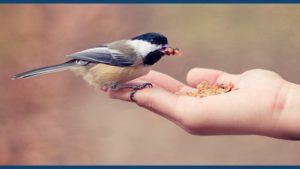Rabbi Stan Zamek | United Jewish Congregation, Hong Kong
 And of all that lives, of all flesh, you shall take two of each into the ark to keep alive with you; they shall be male and female. From birds of every kind, cattle of every kind, every kind of creeping thing on earth, two of each shall come to you to stay alive. Gen. 6:19-20
And of all that lives, of all flesh, you shall take two of each into the ark to keep alive with you; they shall be male and female. From birds of every kind, cattle of every kind, every kind of creeping thing on earth, two of each shall come to you to stay alive. Gen. 6:19-20
Even though we do not understand the flood narrative as a historical account, teaching this passage often sparks a discussion of the creatures we wish Noah had left behind. We are joking when we suggest that it might have been a good idea to have denied cockroaches or leeches passage on the ark, but comments like these are nevertheless revealing. We tend to view the natural world through the lens of our own interests. An organism has value if it is somehow important to us and lacks value if it is not. Parashat Noach tells us that this is not the view of the Torah. God’s command to Noah to preserve all life is the logical extension of the understanding of Creation expressed in Genesis, chapter one. The Divine evaluation of the totality of Creation, every aspect of it, is that it is “very good” in the absolute.
The “goodness” of a particular organism is thus independent of human judgment, as we learn in Exodus Rabbah: “Even things that you see as superfluous in this world, like flies, fleas, and mosquitos, they are part of the greater scheme of the Creation of the world, as it is said: ‘And God saw all that God had created and behold it was very good.’ “ A species is good simply because it exists. In the God’s-eye view of Creation, the fitness or rightness of every organism is intrinsic and given. We are bound to privilege this evaluation of the natural world over our own.
This past (northern hemisphere) summer, my family visited a place that can only be appreciated when seen through this sacred view of Creation. The Ash Meadows National Wildlife Refuge is a kind of ark in the Mojave Desert. The refuge protects a fragile oasis environment where ancient water rises to the surface in a system of seeps and springs. Twenty-six species of plants and animals live in this spot that are found nowhere else on earth, including a number of species of fish— pupfish, to be precise.
The pupfish were what brought us to this remote corner of Nevada. We visited the rocky pool that is the only home on earth of the Devil’s Hole pupfish. I was ridiculously happy to be there, despite the fact that the fence that protects Devil’s Hole from careless contamination made it impossible to see the small fish. We were able to see another species of pupfish, the Ash Meadows Amargosa pupfish, in its sole habitat. It was wondrous to see the fish in their blue-green pools— tiny bundles of life, thriving in a watery island surrounded by a sea of sand and rock. What a privilege to witness such specific, irrefutable proof of Creation’s goodness.
The cynical part of us asks: What is the practical use of an organism like this? What are pupfish good for? In the way we usually understand such questions, absolutely nothing. In the proper view, they are incalculably precious. Aldo Leopold, one of the founders of modern environmental science, said: “A thing is right when it tends to preserve the integrity, stability, and beauty of the biotic community.” A world without pupfish would be much poorer and very, very wrong.
Such a world would also frustrate the intent of the Covenant of Noah. God’s pledge to never again bring the chaos of uncreation to the world is made to “all flesh.” What is this promise, but a Divine commitment to the “integrity, stability, and beauty“ of Creation? When we, through action or inaction, eliminate one of our fellow covenantees, are we not working at cross purposes with God?
On New Year’s Day 2019, the last Achatinella apexfulva died. From a material point of view, the extinction of this species of Hawaiian tree snail barely merits a shrug. From a spiritual point of view, from the point of view of the covenant with all life, it is a bottomless tragedy. We are the captains of the ark now and our passengers are dying on our watch. We may not value our charges, but it is the Holy One’s estimation of the loss that determines our culpability.
Despite our negligence, despite having allowed so many of our covenant partners to perish, the ark that is the earth still holds wonders. We are duty bound to notice each tile of the mosaic of Creation, to declare the goodness of each iteration of life on earth. The clouds of red-based jezebel butterflies I see on Victoria Peak these days are good, as are the garbage-eating wild boar that share my neighborhood. The pupfish in their tiny natural aquaria are good. If we can see and cherish such good as we have left, then perhaps we can cease undoing Noah’s work. Perhaps we can muster the will to save the precious cargo of our ark before it is all engulfed by the flood we have brought upon the world.
The views and opinions expressed in this article are those of the author(s) and do not necessarily reflect the official policy or position of the World Union for Progressive Judaism (WUPJ).
*This article was originally published at Union for Progressive Judaism website.
